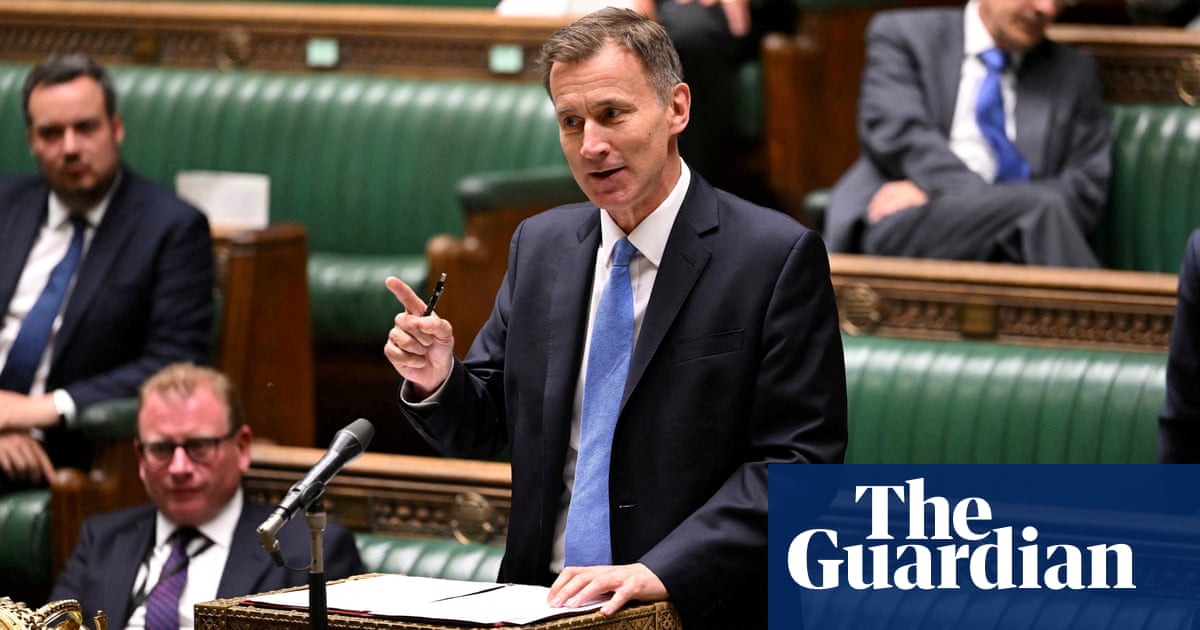
UK public sector wages increased by 2.7% in the year to October, according to official figures that will fuel the anger of rail and health sector workers preparing to go on strike in the run-up to Christmas.
The figure falls vastly short of the headline rate of inflation, now 11.1%, laying bare the cost of living challenge that is hitting public sector workers particularly hard.
Private sector workers received a 6.9% pay rise, according to the latest data from the Office for National Statistics, but much of the increase was driven by bumper pay packages in the financial sector and staff in the accountancy and legal professions.
The headline rate of pay rises for all workers excluding bonuses rose to 6.1% in the three months to October, from 5.7% in September.
When the pay data was adjusted for inflation, pay for all workers fell by 2.7%, cutting living standards at a time of financial stress for millions of people.
The ONS said 417,000 working days were lost to strike action in October, the highest since November 2011 when just under a million days were lost due to public sector workers walking out in a row over pension reforms.
Ministers have said they will fund a pay rise of 3% for public sector workers and give nurses an average of 4% in line with a pay review body’s recommendations.
However, Tuesday’s figures show the growing disparity between the protection against inflation being offered to some in the private sector and the public sector norm.
Nurses have rejected the offer and plan to go ahead with a series of strikes in England, Wales and Northern Ireland in favour of a deal that adds 5% to the retail prices index (RPI) measure of inflation, taking their claim to 19%.
Nurses’ leaders have said they are prepared to negotiate over the final settlement, but say health ministers have failed to consider the offer.
The TUC general secretary, Frances O’Grady, said workers were suffering a reduction in their living standards before a recession that could cut living standards further.
“This year has been the worst for real wage growth in nearly half a century,” she said. “We are now on the brink of a damaging recession with the threat of 1m lost jobs.”
She urged Rishi Sunak to negotiate with public sector unions to head off strike action.
“The prime minister should stop attacking working people trying to defend their pay, and sit down to negotiate fair pay rises with unions,” she said.
Most economists have forecast Britain will enter a year-long recession after a slump in orders across much of the private sector.
Employers in several sectors, including the manufacturing industry, have begun to dismiss workers, pushing up the unemployment rate to 3.7% from 3.6%. The number of vacancies also fell in the three months to October, showing that employers are becoming more circumspect about filling jobs while the economic outlook remains uncertain.
There was better news for the government from employment data showing thousands of people who took early retirement returning to the labour market.
The economic inactivity rate, which shows how many people are outside the labour market, decreased by 0.2 percentage points in the three months to October from the previous quarter to 21.5%. The fall was driven by those aged 50 to 64 years returning to work.
A rush to early retirement among those aged over 55 combined with soaring numbers of workers taking time off work because of ill health is widely blamed for a shortage of workers coming out of the Covis-19 pandemic.
Much of the increase in employment was in the public sector and mostly in the NHS. There were an estimated 5.77 million employees in the public sector in September 2022, 73,000 (1.3%) more than in September 2021. Of these, 47,000 were employed by the NHS.
The chancellor, Jeremy Hunt, said: “While unemployment in the UK remains close to historic lows, high inflation continues to plague economies around the world as we manage the impacts of Covid-19 and Putin’s invasion of Ukraine.”
Hunt added: “To get the British economy back on track, we have a plan which will help to more than halve inflation next year – but that requires some difficult decisions now. Any action that risks embedding high prices into our economy will only prolong the pain for everyone, and stunt any prospect of long-term economic growth.”












